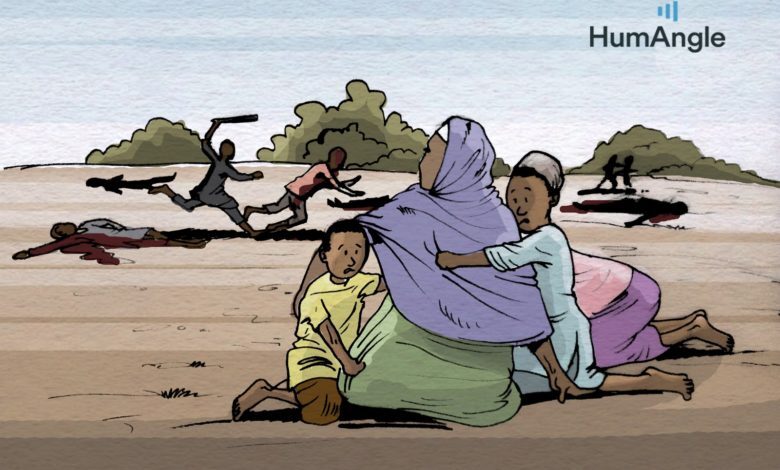Exclusion Of Women In Deradicalisation Programmes Is Counter Productive
Dr Fatima Akilu, an expert in deradicalisation, insists that some women perpetrate terror acts equally like men but their active participation may be downplayed by the label of victimhood constantly placed on them.

Dr Fatima Akilu, a psychologist and expert in countering violent extremism, has identified societal gender dynamics and uneven participation of women in deradicalisation programs as factors downplaying their roles as perpetrators of terror acts.
This, Dr Akilu said, has been denying them the opportunity to go through a mind reset, like their male counterparts.
Speaking during a Twitter space recently organised by HumAngle, psychologist said women join terror groups through various means and have equally been known to play different roles in the groups, including acting as combatants.
While they have been known to play these roles, she disclosed that it has been difficult to establish why women who willingly join terror groups do so.
The reason for the lack of insight, Dr Akilu said, is because “society still sees women in these (conflict) situations as victims, and this has not allowed us to interrogate their roles and their needs further, whether psychological, social or ideological”.
“Most of the deradicalisation programmes run by the government have very few women and more of men, yet, we see women leaders, for example, within Boko Haram,” she said.
“A male perpetrator who has committed terror acts will go into a government program for deradicalisation, but a woman who has played similar roles is just allowed to go back into her community without any engagement whatsoever.”
This apparent neglect and underestimation of “women’s agency” in terror acts, according to the psychologist, is only brewing troubles which would no doubt escalate in the future.
Dr Akilu disclosed that while most women have been known to go into terror groups through abductions and like means, there are equally a select group who join the groups voluntarily because they were impressed by the power wielded by the men who invaded took over their villages.
“These men had access to a lot of resources in the groups, had slaves, organised groups of women and children and were allowed to make certain decisions which would ordinarily not be the case in their heavily patriarchal communities.”
She reiterated that putting such women back into their communities without anything to replace their roles in the groups and without any form of engagement or deradicalisation is a huge misstep by the Nigerian Government.
“I think we need to diversify the policy environment when it comes to DDR (Deradicalisation, Disarmament and Reconciliation),” she said, adding that the security sector in Nigeria is laden with men who equally occupy virtually all of the decision making positions, which reinforces the continued view of women as ‘harmless’ and victims.
Much like Dr Fatima Akilu’s assertion that women play diverse roles in terror groups, an article written by the Institute For Security Studies (ISS), an African organisation research, policy and capacity building think tank, revaeals that women who join terror groups have many reasons for doing so.
According to the article, “They support them “including on the battlefield.”
The article also suggests that “understanding these roles and reasons is critical in shaping processes to reintegrate women back into society” and giving them reasons to leave such groups.
The article, which talks solely about female Boko Haram members, states that the numerous issues surrounding the reintegration of female members of the group into society “necessitates a tailor-made rehabilitation for women who have been associated with Boko Haram”.
“This might never come to be as no framework for engagement” of women associated with terror groups in Nigeria.”
The ISS revealed in its article that a majority of its female interviewees who went through the DDR rehabilitation centre in Bulumkutu, located in Borno, Northeast Nigeria, said: “they were simply told to forget about their experiences, ignore or report stigmatisation, and live peacefully within the community.”
Support Our Journalism
There are millions of ordinary people affected by conflict in Africa whose stories are missing in the mainstream media. HumAngle is determined to tell those challenging and under-reported stories, hoping that the people impacted by these conflicts will find the safety and security they deserve.
To ensure that we continue to provide public service coverage, we have a small favour to ask you. We want you to be part of our journalistic endeavour by contributing a token to us.
Your donation will further promote a robust, free, and independent media.
Donate HereStay Closer To The Stories That Matter




